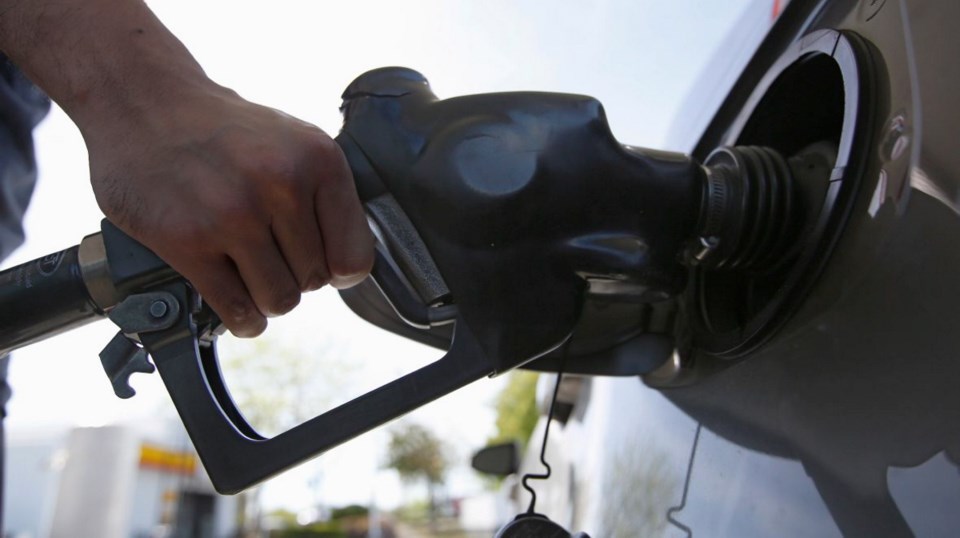 Premier John Horgan’s gas price inquiry is a move pulled from the playbook of former NDP premier Glen Clark in the 1990s.
Premier John Horgan’s gas price inquiry is a move pulled from the playbook of former NDP premier Glen Clark in the 1990s.
It didn’t work then — no fault of that inquiry — and it’s an open question whether it will accomplish much now. There will be an opportunity for people to vent their frustrations. There could be a show trial of sorts for any oil executives who can be compelled to show up.
But don’t expect a big price rollback arising from the report, due Aug. 30.
The one thing it will accomplish is to reduce the pressure Horgan put on himself to do something when he started complaining about gas prices a few months ago.
Clark was in a similar situation 23 years ago. Gas prices had jumped 10 cents a litre, to about 66 cents in Vancouver. “Outrageous!” said Clark.
He ordered an inquiry by the B.C. Utilities Commission, the same body Horgan has tasked. It was then headed by Mark Jaccard, who spent a few months delving into the eternal mysteries of pump prices on the coast.
Clark wanted a popular confirmation of everyone’s suspicions that the oil companies are all in cahoots. Then he could shame them into lowering the price and emerge as a saviour. “On your side,” was the slogan he’d just won the election on.
But Jaccard, a Simon Fraser University professor who has built a career as an energy and climate-change thinker, didn’t deliver the political goods. He traced the 10-cent increase back to logical factors.
“In general, the inquiry finds that the market sectors (crude oil supply, refining and distribution, retailing) which determine gasoline prices in B.C. are subject to competitive pressures.”
Crude prices were set by the international market, where there was competition, he said.
“The retail sector of the market also appears to be relatively competitive,” he said.
His inquiry concluded there was some “price discrimination,” or unexplained mark-up, but not much.
It “does not appear to result, on average, in abnormally high profit margins for the major oil companies,” he said.
He recommended that government rely on market forces and help independent retailers to thrive, rather than try to regulate lower prices.
Reached Wednesday, Jaccard recalled: “I think it kind of irritated the NDP. But I’m evidence-based, and I couldn’t find evidence to back up what they wanted.”
He paraphrased the Clark government’s reaction: “We appointed this guy so we could beat up the oil companies and he comes up with a finding like that.”
Flashing forward to the present, 2019 is not 1996, and $1.62 at Victoria pumps isn’t 66 cents.
Jaccard said things are different and he was shocked at in-depth research by one of his former students that showed the mark-up is much higher now. “That does smell of lack of competition.”
But it’s not just Metro Vancouver. The entire West Coast of North America pays more for gas than elsewhere, he said, because of a permanent problem about access to refined product.
A California colleague of his calls it the “magical surcharge” on the pump price that can’t be fully explained, but relates to lack of competition related to lack of refined product. One of the fundamental problems driving gas prices is that B.C. needs more refinery capacity.
Jaccard said B.C. needs a whole new strategy, not only on gas and diesel but on biofuels as well, to meet the new low-carbon fuel standards. The inquiry’s terms of reference don’t specifically mention that.
What’s highlighted is the political angle. The government said the inquiry will investigate “the extent of possible competition concerns, such as price fixing and gouging.” But those words don’t appear anywhere in the terms of reference.
The government is hyping expectations of finding some villains. It’s also downplaying a severe restriction imposed on the inquiry: “The commission may not inquire into the effects of provincial enactments or policy on gasoline and diesel prices.”
In other words, don’t blame the carbon tax, or any other taxes that make up a big share of the pump price.
And don’t look too closely at the NDP’s argument over the pipeline, which is related to refineries, which goes to the price of gas.



